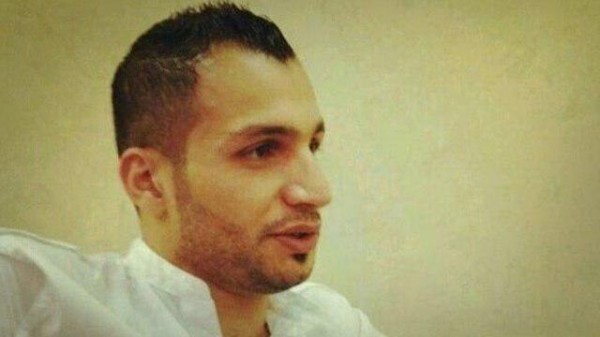On 10 May 2017, Bahrain’s High Appeals court upheld the death sentence of Maher Abbas al-Khabbaz on charges related to his alleged role in the murder of a police officer in February 2013. The trial of al-Khabbaz failed to meet international standards of due process. Bahraini authorities reportedly subjected al-Khabbaz to torture and other forms of physical and psychological abuse as a means of forcing him to confess to the killing, and subsequently used this confession as a cornerstone of the state’s case against him. The trial itself, and the reaffirmation of al-Khabbaz’s death penalty, highlights Bahrain’s deeply troubling practices with regard to the use of torture, its acceptance in judicial proceedings, and its culmination in securing death sentences.
Plainclothes Bahraini security officers arrested al-Khabbaz from his place of business on 17 February 2013, three days after an incident in which a police officer was allegedly killed with a flare gun. Despite al-Khabbaz’s presentation of an alibi and their own failure to produce an arrest warrant, Bahraini security forces took al-Khabbaz into custody and proceeded to forcibly disappear him for a period of seven days. Over the course of his detention, Bahraini authorities prevented al-Khabbaz from accessing legal counsel and subjected him to torture. Security forces beat him with their firsts as well as with sticks and wires, forced him to stand for prolonged periods of time, electrocuted him, and prevented him from praying, eating, and using the toilet. Bahraini authorities also subjected al-Khabbaz to falaka, a form of whipping that targets the most sensitive areas of the feet and hands. Bahraini authorities used these coercive measures to extract a forced confession from al-Khabbaz.
After he was forced to confess, Bahraini authorities brought al-Khabbaz before a judge, at which point the public prosecutor officially charged him with premeditated murder. Throughout his trial, the prosecution relied on al-Khabbaz’s coerced confession, the false confessions of alleged compatriots, and the testimony of other police officers in order to secure a conviction. No murder weapon was ever presented. In fact, the public prosecution argued that the flare gun allegedly used in the crime had been stolen from a maritime company, but the manager of that company stated that no such item was missing from his supply. The court also ignored requests to investigate allegations of torture. The government denied al-Khabbaz access to a lawyer for much of the trial, and ultimately prevented the defense from calling any witnesses and from attending whole portions of trial proceedings. Nonetheless, the court convicted al-Khabbaz and sentenced him to death on 19 February 2014. Successive courts have reaffirmed the sentence throughout the appeals process.
The trial and sentencing of Maher al-Khabbaz shines a light on a number of deeply troubling components of the Bahraini judicial system, particularly with regard to torture and capital punishment. Indeed, al-Khabbaz is not the first individual to receive a death sentence after a trial that failed to meet international standards. In late December 2014, for example, a Bahraini court sentenced Mohammed Ramadan and Husain Ali Moosa to death for their alleged involvement in a bomb explosion that resulted in the death of a policeman; their convictions relied heavily on evidence extracted under conditions of torture. In January 2017, the Government of Bahrain executed Sami Mushaima, Ali Al-Singace, and Abbas Al-Samea, all of whom were reportedly tortured into producing false confessions. In the aftermath of their deaths and in light of the severe due process violations involved in their trials, the UN Special Rapporteur on extrajudicial killings condemned the executions as being extrajudicial. The executions were similarly condemned by the UN Office of the High Commissioner for Human Rights and the European Parliament.
The execution of Mushaima, al-Singace, and al-Samea marked the end of a de facto moratorium on the application of the death penalty in Bahrain that had been in place since 2010. The renewed application of the penalty, coupled with the Bahraini authorities’ continued practice of torture and the admissibility of evidence obtained under duress in the country’s judicial proceedings, creates an extremely worrying environment for those currently on death row and those who may be sentenced to death in the future. Such concerns were recently reiterated by the UN Committee against Torture (CAT), which called on Bahrain to investigate allegations of torture and instate a moratorium on the use of capital punishment.
The Bahraini government must heed the advice of the CAT and others and cease its application of the death penalty with a view toward legally abolishing the practice altogether. Until the country establishes a record of refusing coerced evidence and independently investigating allegations of torture and other due process violations, any death sentence issued by a Bahraini court will have the specter of illegitimacy hanging over it. The international community must be unequivocal in its demands that the Bahraini government address such violations and take steps to ensure that the country does not rob any more of its citizens of their right to life under the guise of judicial legitimacy.
Phil Bracey is an Advocacy Intern at ADHRB.





